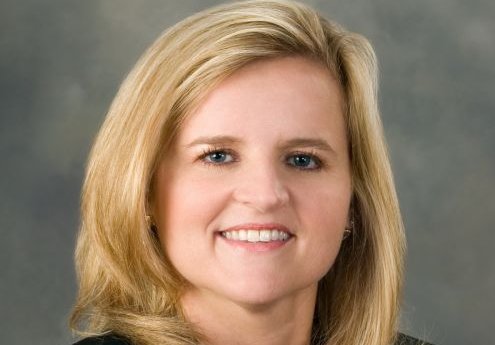BLOG VIEW: 2020 was a year of profound changes for everyone, mortgage professionals included. Many borrowers and mortgage servicers have felt the impact of COVID-19 and natural disasters. Federal programs that protect homeowners from foreclosure have complicated mortgage servicing, including investor reporting. Since COVID-19 hit, servicers have had to adjust their processes to account for millions of loans entering forbearance and holds on foreclosure proceedings because of the CARES Act.
While the number of loans in forbearance has declined, approximately 2.7 million homeowners are still in forbearance plans as of December 6. During the first week in December, new forbearance requests reached their highest level since early August. Compared to the previous two months, more homeowners exiting forbearance are using a loan modification. Government sponsored enterprises (GSEs) Fannie Mae and Freddie Mac have established guidelines on how servicers should report on the new loss mitigation programs. These adjustments have created additional complexities for servicers reporting to the GSEs.
To efficiently service loans sold on the secondary market, servicers need robust mortgage servicing software that automates investor reporting, facilitates compliance, and accommodates reporting and regulatory changes.
Navigating the Complexity of Investor Reporting
When they sell loans on the secondary market, many lenders choose to retain servicing to provide a better customer experience and increase revenue. Servicers must comply with investor reporting requirements and accurately communicate the status of loans in their portfolio.
As the largest investors of residential loans, the GSEs have specific requirements on loans they have purchased. Key requirements include the following:
- Reporting principal and interest collection activity;
- Drafting funds due to the investor;
- Resolving reporting and drafting discrepancies; and
- Reconciling custodial accounts.
Forbearance guidelines complicate investor reporting. Servicers must comply with additional requirements regarding reporting on borrowers participating in forbearance plans. Freddie Mac, for example, classified COVID-19-related forbearance plans as disaster-related. For the most part servicers could follow established procedures for disaster modification programs, except for when reporting program title information. Then, the servicer must label the modifications as “Extend Modification for COVID-19” and “Cap and Extend Modification for COVID-19,” respectively.
The global pandemic is not the only major event impacting servicers in 2020. This year has also been filled with natural disasters, adding more complexity to investor reporting. For example, Freddie Mac extended its disaster payment deferral guidelines to assist homeowners.
According to Freddie Mac’s updated credit reporting guidelines, if a borrower is on a disaster-related forbearance plan, repayment plan or trial period plan, servicers must report activity to the credit bureaus in accordance with applicable law, including the Fair Credit Reporting Act. Servicers must continue reporting the appropriate delinquency status and default information to Freddie Mac through the Loan Level Reporting tool and Electronic Default Reporting (EDR), respectively. Once the Disaster Payment Deferral has been completed and the Mortgage is brought current, the Servicer must report the Mortgage as current through the Loan Level Reporting tool.
To handle these changes, servicers need mortgage servicing software that is updated regularly to accommodate these and other investor reporting and regulatory changes. Without regularly updated software to support the forbearance programs and disaster deferrals, servicers will have to rely on time-consuming manual reporting for these special programs.
The Right Servicing Software Can Help
When servicing loans that have been sold to the secondary market, servicers need robust mortgage servicing software that is specifically designed to handle investor reporting, track forbearance and post-forbearance plans, and accommodate payment deferment and other loan modifications.
Some banks and credit unions rely on their core processing system to service their mortgage loans. This creates problems, however, because the core often has limited mortgage loan functionality. Core systems may not be set up to optimally handle investor reporting and compliance requirements. Due to automation limitations, servicers often perform many reporting and other tasks manually. Manual processing results in more errors, and it takes up valuable time that could be better spent providing personalized service to borrowers.
Servicers need mortgage servicing software that can support all industry-standard reporting methods recognized in the secondary market and produce reconciliation, remittance, delinquency, prepaid and trial balance reports according to the chosen reporting method.
When choosing servicing software, servicers should ensure the solution they choose can do the following:
- Support all industry-standard reporting methods;
- Produce reconciliation, remittance, delinquency, prepaid and trial balance reports; and
- Perform advance and recovery of Principal and Interest (P&I) and Taxes and Insurance (T&I).
Mortgage servicing software must be able to generate the necessary reporting for the investors a lender works with. The institution should select software that supports the GSE systems and financial institution core systems.
Technology drives every aspect of mortgage banking today. From the time of the loan application through the remaining life of the loan, technology plays a key role in operations, risk management, and regulatory reporting. Don’t settle by using a system that isn’t focused on mortgages.
Instead, invest in robust mortgage servicing software that facilitates adherence to changing regulatory and investor requirements. Select a vendor that has a proven record in the industry and good relationships with investors. By doing so, servicers can ease investor reporting and maximize efficiencies, giving them more time to deliver prompt, personalized customer service.
Susan Graham is president and chief operating officer of Financial Industry Computer Systems, Inc. (FICS), a mortgage-software company specializing in mortgage origination, residential mortgage servicing and commercial mortgage servicing software for mortgage lenders, banks, and credit unions.











